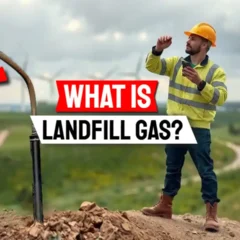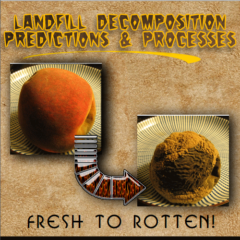Waste Decomposition
What is Landfill Gas?
Landfill gas is a mixture of methane and carbon dioxide produced by the anaerobic decomposition of organic waste. It contains other trace gases, including hydrogen sulfide, which gives it an unpleasant odor. Understanding landfill gas is key to managing environmental impact and exploring renewable energy opportunities…
Landfill Sites – 3 Compelling Reasons to Bury the Use of Dumps
Landfill Sites are not sustainable, and here are 3 compelling reasons to bury the idea that we continue to use landfills (dumps) for municipal waste beyond the next 10 years. All waste has to be disposed of in a safe manner. If not it is a major health problem in densely populated urban areas, second […]
Waste Decomposition and Degradation of Waste in Landfills
Waste Decomposition: The Main Stages of waste decomposition, otherwise known as the waste degradation process An understanding of the Main Stages of waste decomposition. Which is alternatively called “the waste degradation process” is essential to understand how a landfill will gradually change over many years. We are often asked how many years will it take […]
Aerobic Landfill and Why The Subject Will Not Be Forgotten
A key topic raised in many countries, not least Japan, is why most other industrialized nations have gone so strongly for sanitary landfill design, which locks up waste and only slowly allows it to decompose with air (anaerobically) and not aerobic landfills which rot away quickly. The awful longevity of sanitary landfilling, becomes clear when […]
Waste Decomposition – Sanitary Landfills a 1,000 Year Liability
Government Sponsored Research Shows Slow Waste Decomposition Means Landfills Present 1000 Year Liability (This article is based upon one which we first wrote for this website in 2004. The issues raised remain largely un-addressed and we think that they are as pertinent today as they were at the time.) Research published in September 2004, which was […]





